THANK YOU
TO ALL OF OUR SUPPORTERS, VOLUNTEERS, + ATTENDEES, SEE YOU IN MEDELLÍN IN 2022!Congratulations to the organizers of WCSJ2019 and WCSJ2023!
Student Coverage
-
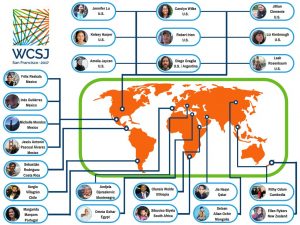
Student Journalists Produce 52 Reports from WCSJ2017
Rob IrionStudent science writers from around the world have created a set of 52 stories from the World Conference of Science Journalists 2017, spanning most of the meeting’s sessions and creating a valuable reference archive for journalists in the U.S. and abroad. The reports, along with bios of the authors, are online at the WCSJ2017 Student... Read More -
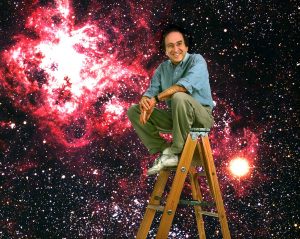
Will Cosmologists Save the World? Approaches from Scientific Training Could Shape Public Debates
Amelia JaycenBy Amelia Jaycen SAN FRANCISCO—Saul Perlmutter, a Nobel Prize–winning astrophysicist and cosmologist at Lawrence Berkeley National Laboratory, has spent a lot of his time ascertaining how quickly the universe is expanding. But he is also concerned with some down-to-earth issues, like the state of human interactions. As he watched public discussions unfold in the last... Read More -
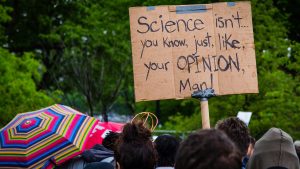
Fact-Checking In the Age of “Fake News”: A Q&A With Brooke Borel and Alex Kasprak
Carolyn WilkeBy Carolyn M. Wilke SAN FRANCISCO—Is fact-checking the future of journalism? That question, at once disturbing for our society and promising for the increased role science journalists might play in combating fake news, drove a panel discussion among four experts on 30 October at the World Conference of Science Journalists 2017. The panelists, all experienced... Read More -
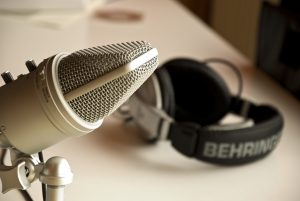
Science Podcasts: The Fun, the Challenges, and Tips from the Pros
Ellen RykersSAN FRANCISCO—Science podcasts are more popular than ever. Producing them takes time, technical savvy, and a deep passion to engage listeners with material that is both informative and fun. How does one start a science podcast and build a dedicated audience? Those topics drew an enthusiastic crowd on 27 October at the World Conference of... Read More -
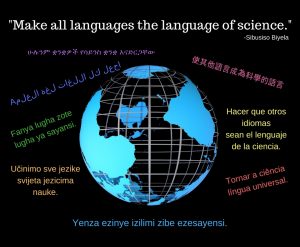
How “Decolonizing” Science Can Make It Better
Liz KimbroughBy Liz Kimbrough SAN FRANCISCO—When South African student journalist Sibusiso Biyela sat down to write about the launch of the MeerKAT telescope in both English and Zulu, he thought it would be simple. The English version rolled out smoothly. But when he began to translate into Zulu, his native language, he found he would have... Read More -

Covering Sexual Harassment in Science: Journalists Weigh In On the Challenges
Liz KimbroughBy Liz Kimbrough SAN FRANCISCO—When the sexual harassment case of astronomer Geoffrey Marcy of the Univerity of California, Berkeley, came across her desk at BuzzFeed News, science reporter Azeen Ghorayshi was well equipped to break the story. Buzzfeed’s newsroom and legal team had years of experience handling sexual assault and sexual harassment stories on university... Read More -

Climate Change and California: A State Where Scientists Have the Ears of Policymakers
Sergio VillagránBy Sergio Villagrán BERKELEY, California—On 13 November, a letter signed by more than 15,000 researchers, titled “World Scientists’ Warning to Humanity: A Second Notice,” appeared in the journal BioScience. Coming 25 years after the first such warning from the scientific community, the letter notes how little we have done to stop the negative environmental trends... Read More -
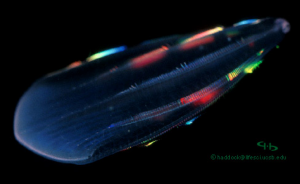
Undersea Robots Capture the Lives of Mysterious Deep-Sea Jellies
Carolyn WilkeBy Carolyn M. Wilke MOSS LANDING, California—Forget Mars. The next frontier in the search for undiscovered life forms may lie deep in the oceans of our own planet. Thousands of meters below the ocean’s surface, hulking underwater rovers probe the remote depths looking for mysterious creatures. “It really is like an alien landscape, but just... Read More -

The Future Needs Funding: The Persistent Struggles of Digital Science Magazines
Inés GutiérrezBy Inés Gutierrez SAN FRANCISCO—For quite some time, the words “the future is now” have been chasing us. Our collective imagination envisions a tomorrow filled with holograms, interactive media and 3D images. But when we look around, we realize that day may not come soon. However, one thing has visibly changed: digital content is more... Read More -
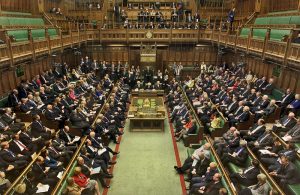
With Science Under Attack, Should Journalists Enter the Fray? A “House of Commons” Debate
Kelsey HarperBy Kelsey Harper SAN FRANCISCO—“There’s no sitting on the sidelines today,” announces German science journalist Kai Kupferschmidt as conference attendees shuffle into the room with matching looks of vague confusion. He herds them to the front of the room, where two groups of chairs face each other. The seats are separated by an aisle 3.96... Read More -
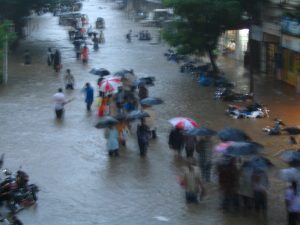
“Wafflers” Exert a Growing Influence on the Climate Change Debate
Margarida MarquesBy Margarida Marques SAN FRANCISCO—Among climate-change skeptics, “wafflers” are stalling actions that can lead to solutions as they increasingly influence public debate and government policy. Allowing wafflers to take center stage in the debate is their willingness to state “humans may have something to do with climate change,” followed by the qualifying word “but”—meaning the process... Read More
